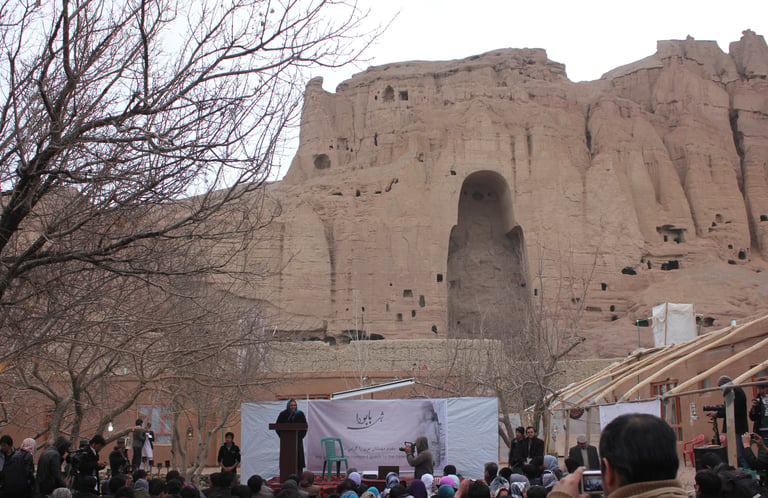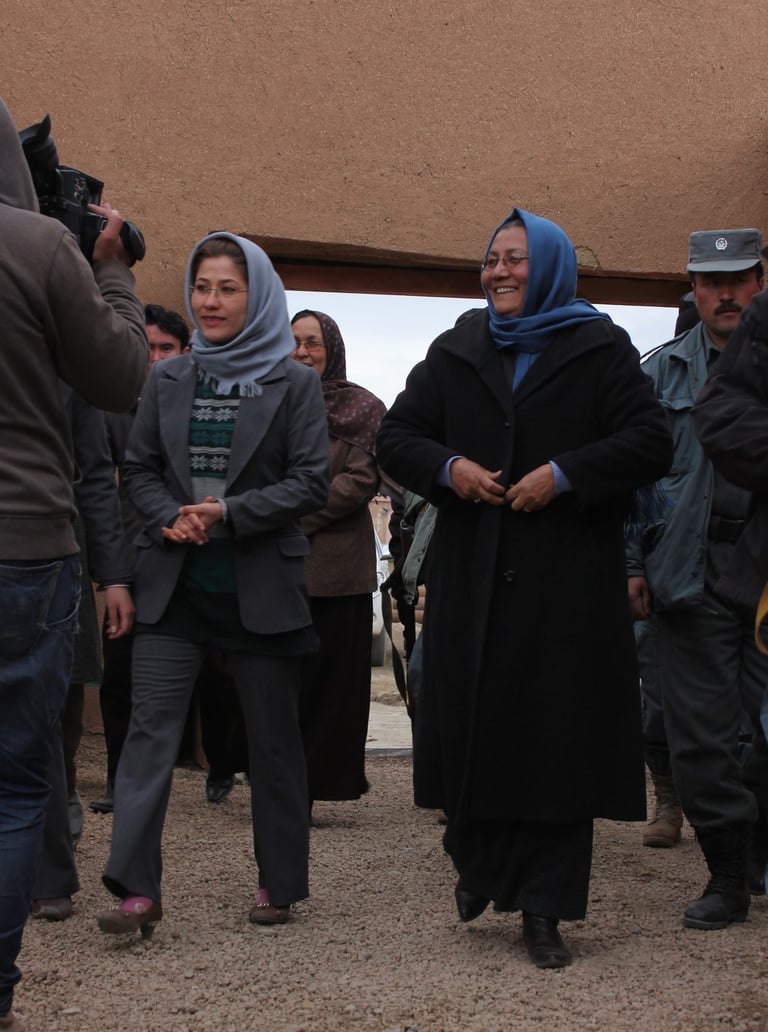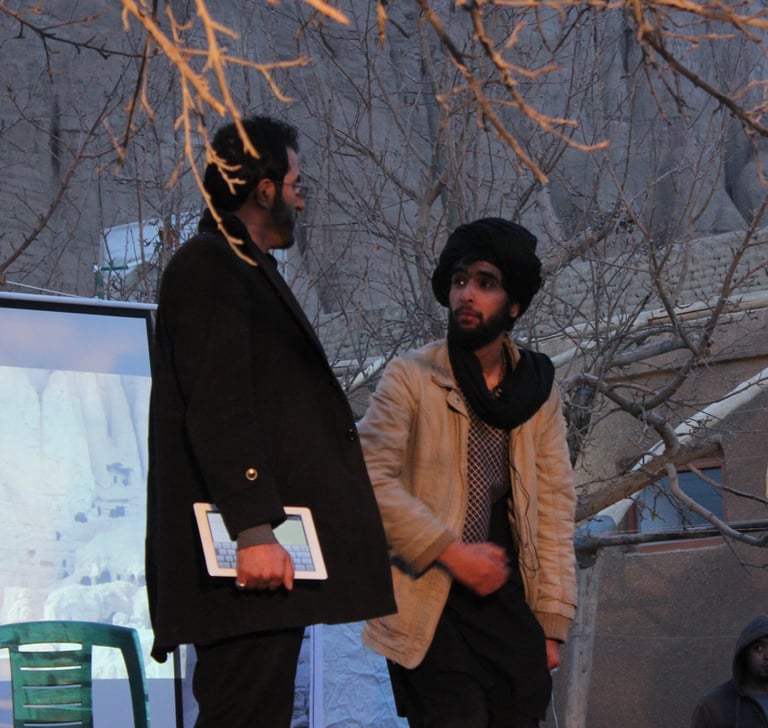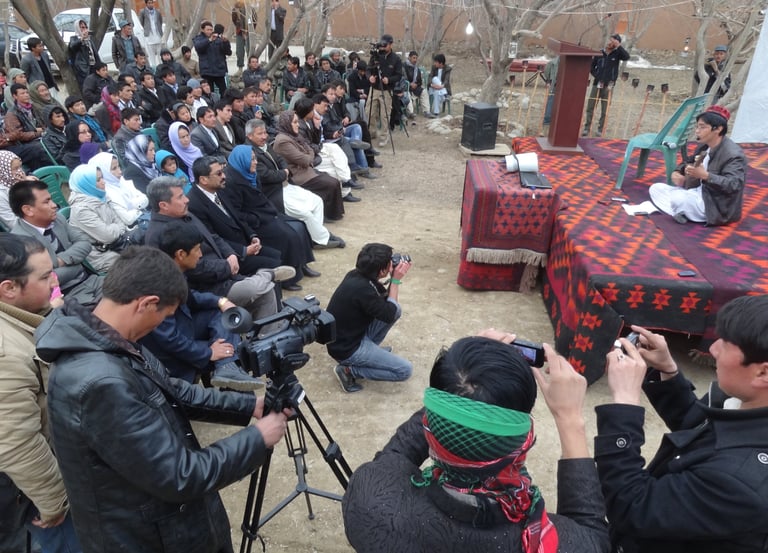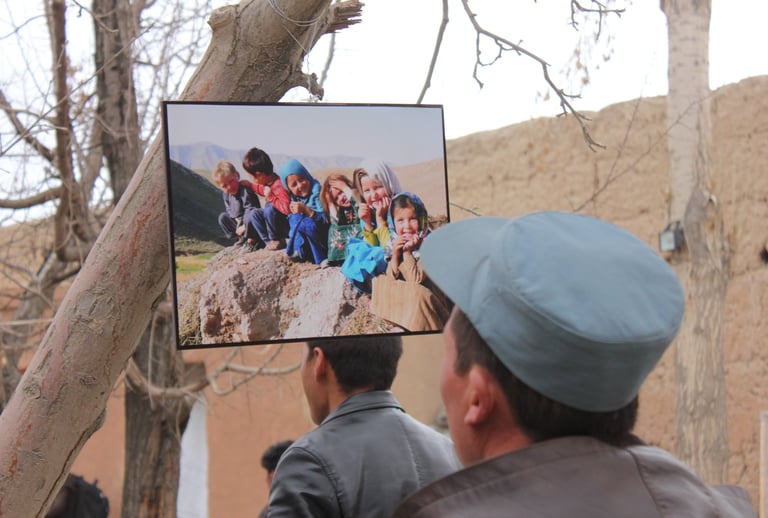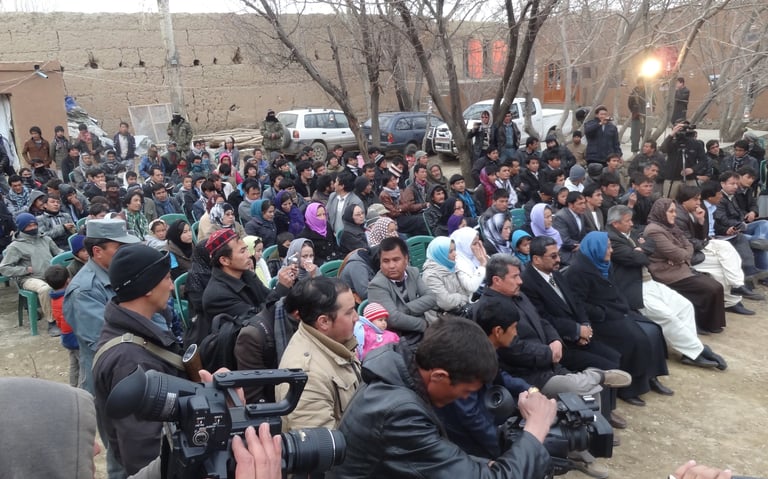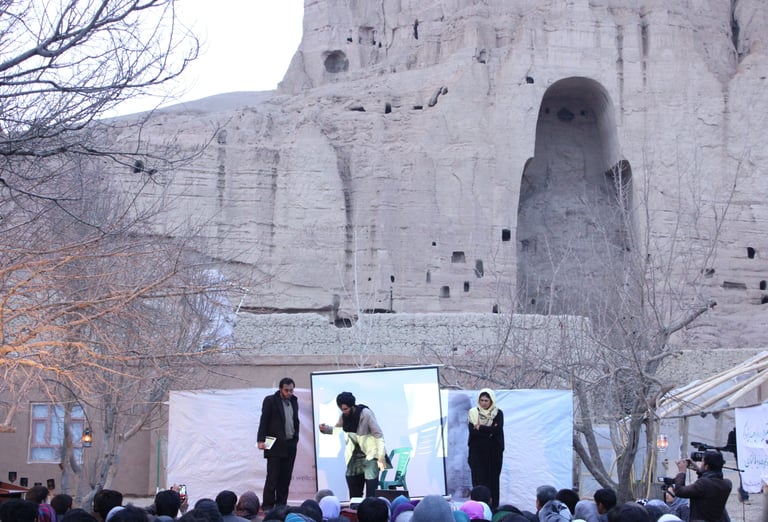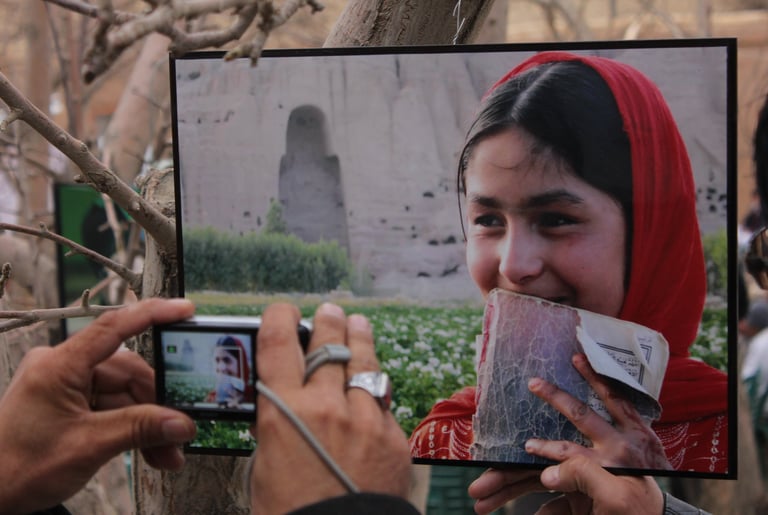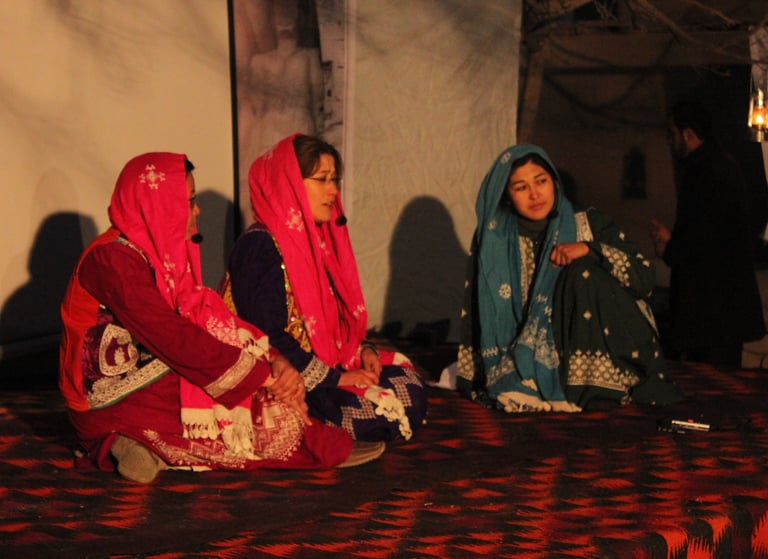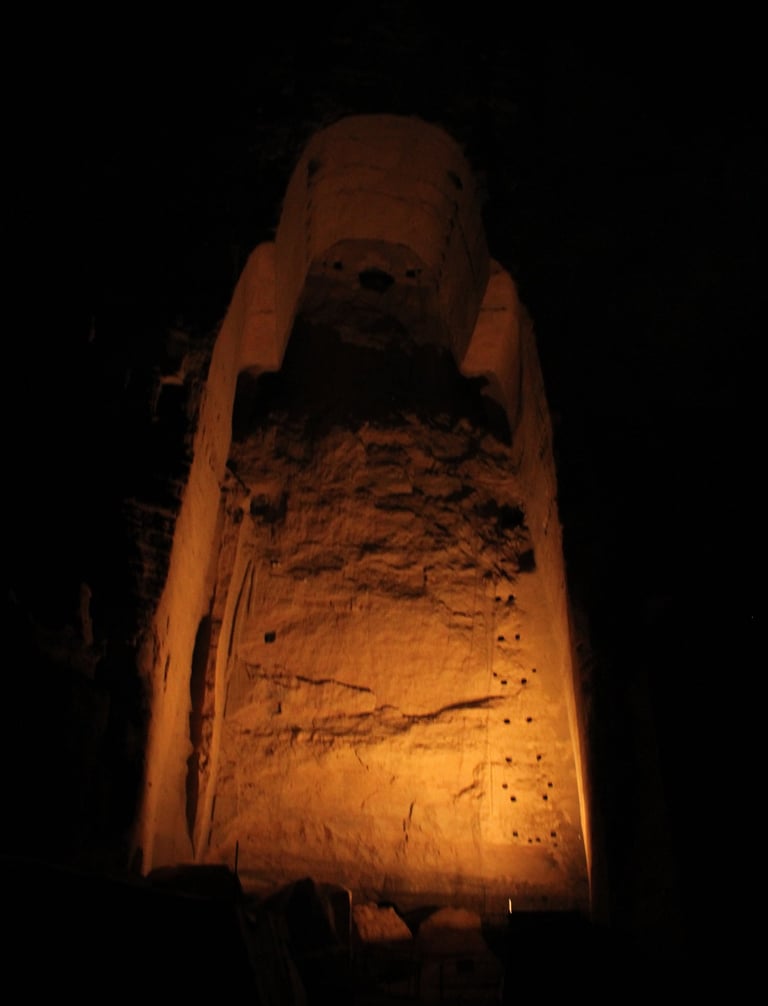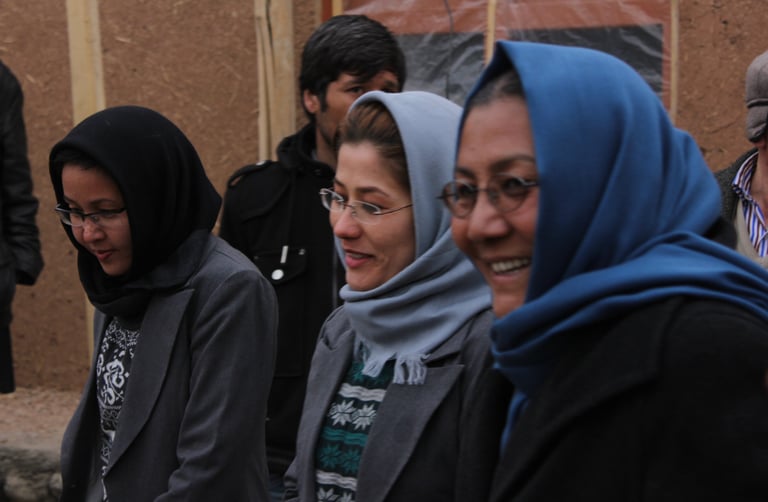

In late February 2013, just before the anniversary of the Buddha statues’ destruction, Monirah Hashemi and Maryam Sharifi envisioned a platform to break the silence surrounding Bamiyan’s lost cultural heritage. Their goal was to spark a public conversation about the destruction and its impact.
They quickly gathered a small group of artists and volunteers, and on March 11, 2013, the first event of A Night with Buddha took place. It featured an outdoor photo exhibition, Dambura music, theater performances, and folk songs, all held in front of the empty Buddha niches. A memorable moment from that evening was a march towards the statues, where the group carried 12 torches—one for each year since the destruction. A Fresnel light illuminated the empty niche, and for the first time since 2001, people gathered not to mourn, but to celebrate their heritage openly.
From this small gathering, A Night with Buddha grew into an annual festival that became a cornerstone of Bamiyan’s cultural scene. It expanded to include poetry nights, storytelling, book fairs, handicraft exhibitions, and academic discussions on cultural preservation. What began as a small event in 2013 evolved into a major cultural celebration that drew participants from Bamiyan and beyond, including visitors from Kabul.
In 2019, a pivotal moment occurred when the people of Bamiyan asked the festival organizers from Kabul to step aside. They were ready to take ownership of the event, proudly embracing the cultural significance of the Buddha statues and the festival itself. This shift marked a turning point as A Night with Buddha became truly local, rooted in the community’s identity and resilience.
However, with the Taliban's return to power, all cultural and artistic activities were banned in Afghanistan. A Night with Buddha was forced into exile, as the regime’s hostility toward art, culture, and women’s participation intensified. Yet, in these difficult times, the festival continues to create alternative spaces for cultural discussion and preservation, ensuring that the spirit of Bamiyan and its heritage remain alive.
